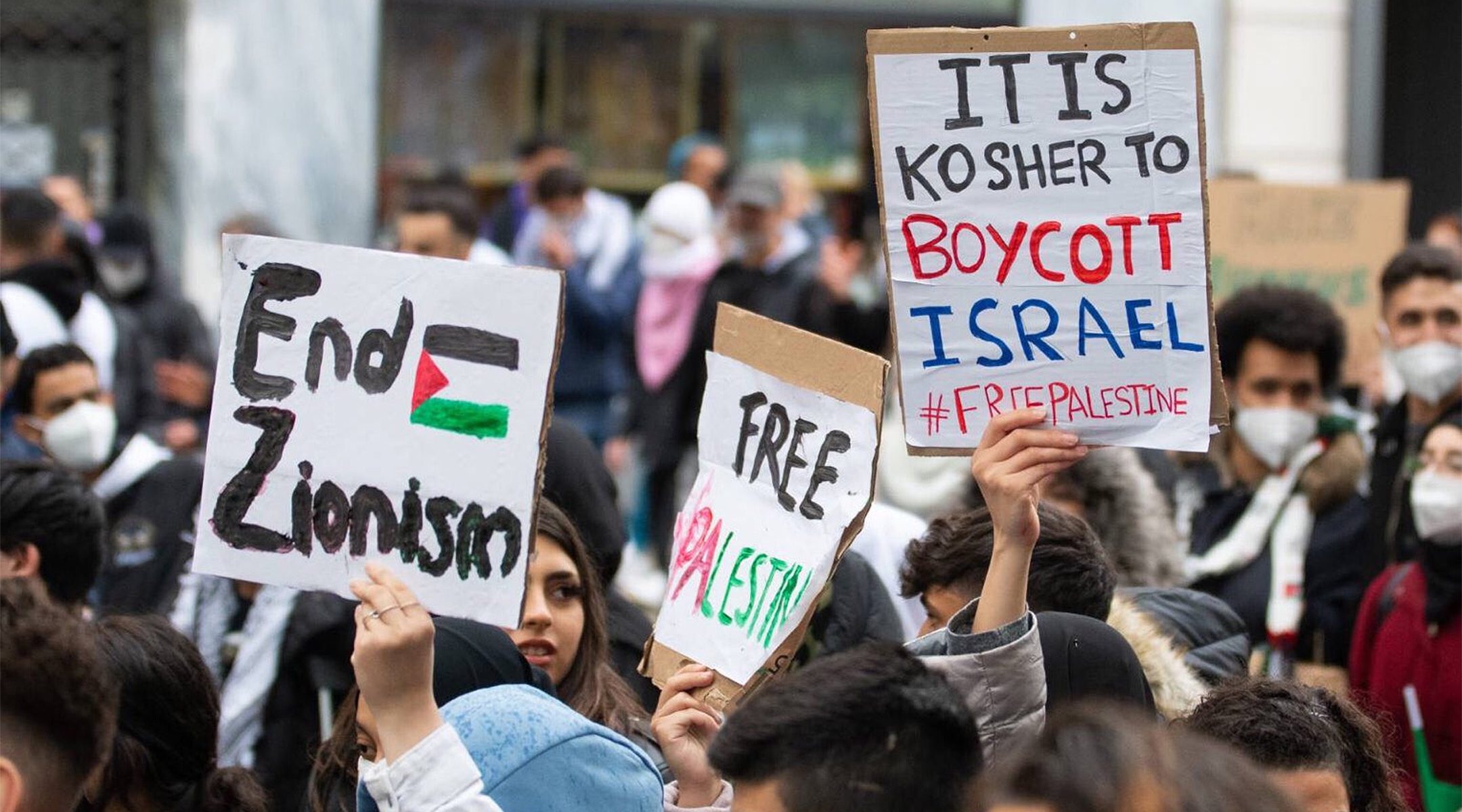An Important Message from ISGAP
Like you, all of us at the Institute for the Study of Global Antisemitism and Policy are watching in horror at the global impact of the Israel-Hamas conflict, and the calls to attack Jewish communities and individuals throughout the world. While ISGAP welcomes the ceasefire, we remain alert as the fragile situation unfolds.
We are concerned for the safety of our family, friends, colleagues, and all of the citizens of Israel as they huddle in stairwells and bomb shelters under a rain of thousands of rockets that target only civilians. The rockets were launched by terrorist organizations, whose founding principles are rooted in the same antisemitism that the Jewish people have faced for millennia, including variations of this ‘longest of hatreds’ that are closely associated with the Shoah, with the stated aim of exterminating the Jews.
We mourn every life taken by Hamas’ violence, including Palestinian civilians suffering under its iron fist.
As scholars committed to the mapping and assessment of global antisemitism, we are concerned at the predictable acceleration of this scourge as violent attacks take place on the streets of Israel, which was established to be the refuge for the Jewish people, a haven in a world hostile.
We are enraged by the convulsion of antisemitic rhetoric, protests, and physical attacks occurring throughout the world even as Israel is under attack. Jewish communities and individuals are facing violence at the hands of violent antisemites who are taking this opportunity as an excuse to vent their perennial hatred of the Jewish people.
Jews are being attacked not for their solidarity with Israel but for going about their lives as Jews. Jewish communities around the world, and even in great democracies such as the United Kingdom, France, Canada and the United States, there is increasing danger for Jewish citizens to leave their homes with a kippah on their head or a Magen David around their neck. More and more universities are becoming hostile environments for Jewish students and faculty.
The antisemitism that drives these acts is legitimized to many journalists whose reporting on Israel’s policies and military responses is routinely laced with classic antisemitic tropes that are broadcast and printed for all to see, hear, and read.
These voices are amplified by social media, which is a breeding ground for the most vile and dangerous forms of hate that not only question Israel’s right to exist but call for its destruction and the eradication of its Jewish inhabitants as well as Jews everywhere.
This is what contemporary antisemitism looks like when it goes unchallenged and is given license to spread unchecked.
At ISGAP, we remain committed to pushing back against this torrent of hate the best way we know how – by equipping a network of intellectual fighters to combat antisemitism on the battlefield of ideas. Devoted scholars we have worked with over the years are now teaching about how to understand and combat antisemitism in society in general, and within academia, and to push for legislation and policies to fight antisemitism in the halls of power all over the world.
We won’t stop until those who combat antisemitism within academia and government overwhelm those who spread it.
To learn more about our work and to discuss how you can help us in our efforts, please reach out to Evan Pilz, ISGAP’s Director of Development, at [email protected].
Thank you for all of your support. May we all remain united in our goals and may we all see better days soon.
With warmest regards,
The ISGAP Academic Steering Committee
Chair – Dr. Charles Asher Small, Executive Director, ISGAP; Research Scholar, St. Antony’s College, Oxford, United Kingdom
Professor Irving Abella, Senior Shiff Professor of Canadian Jewish History, York University, Toronto, Canada
Professor Ellen Cannon, Professor of Political Science and Jewish Studies, Northeastern Illinois University, Illinois, United States
Professor Brahm Canzer, Professor of Business and Strategic Marketing, Concordia University, Montreal, Canada
Professor Raphael Cohen-Almagor, Professor and Chair, Politics Department, Founder and Director of the Middle East Study Group (MESG), University of Hull, England
Professor Amy Elman, Weber Professor in Social Science, University of Kalamazoo, United States
Professor Sylvia Barack Fishman, Joseph and Esther Foster Professor Emerita of Judaic Studies, Brandeis University, Boston, United States
Professor Joël Kotek, Professor of Political Science, Free University of Brussels (ULB) and the Institut d’Etudes Politiques de Paris, Brussels, Belgium
Professor David Patterson, Hillel A. Feinberg Distinguished Chair in Holocaust Studies, Ackerman Center for Holocaust Studies, University of Texas at Dallas, United States
Chloe Pinto, PhD Candidate, English Faculty, Cambridge University, United Kingdom

